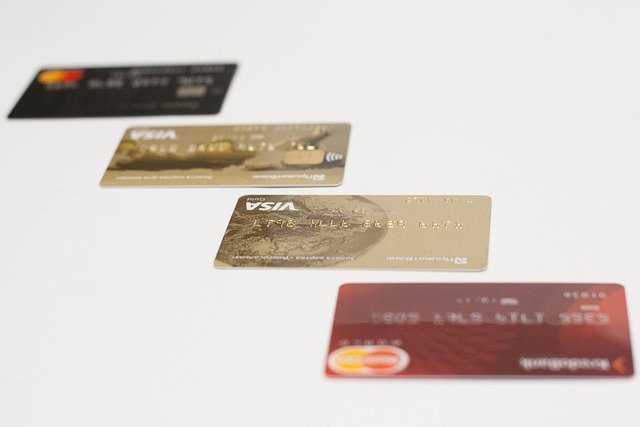Understanding Credit Cards and Building Credit in the UK
Credit cards serve as essential financial tools in the UK, offering convenience for everyday purchases while simultaneously helping individuals establish and strengthen their credit history. Whether you're a sole trader seeking business credit solutions or someone looking to build credit from scratch, understanding how credit cards work and their role in your financial profile is crucial for making informed decisions.

How Credit Cards Help Build Your Credit History
Building a solid credit history is fundamental to accessing better financial products in the future, from mortgages to personal loans. Credit cards represent one of the most effective tools for establishing this history, particularly for those starting out. When you use a credit card responsibly—making purchases and paying off the balance on time each month—you demonstrate to lenders that you can manage credit effectively. Payment history accounts for a significant portion of your credit score, making consistent, timely payments essential. Even small, regular purchases paid off in full can gradually build a positive credit profile. For those new to credit, starting with a credit builder card or a card with lower credit limits can provide an accessible entry point. The key is maintaining low credit utilisation, ideally below 30 percent of your available limit, and never missing payment deadlines.
Credit Card Options for Sole Traders and Business Use
Sole traders in the UK face unique challenges when seeking business credit cards, as their personal and business finances are often intertwined. Business credit cards designed for sole traders offer several advantages, including expense tracking, separation of business and personal spending, and potential rewards on business-related purchases. Many providers offer cards specifically tailored to small business owners and self-employed individuals, though approval often depends on both business income and personal credit history. These cards typically provide features such as employee cards, detailed spending reports, and sometimes introductory periods with lower interest rates. When selecting a business credit card as a sole trader, consider factors such as annual fees, interest rates on outstanding balances, rewards programmes aligned with your spending patterns, and credit limits that match your business needs. It’s worth noting that responsible use of a business credit card can also contribute positively to your personal credit file, as sole traders are personally liable for business debts.
Understanding Credit Card Types Available in the UK
The UK credit card market offers diverse options suited to different financial situations and goals. Standard credit cards provide basic functionality for everyday purchases, while balance transfer cards allow you to move existing debt from higher-interest cards, often with promotional zero or low-interest periods. Purchase cards offer similar promotional rates on new spending rather than transfers. Rewards credit cards provide cashback, points, or travel miles based on spending, though these typically require good credit scores for approval. Credit builder cards cater specifically to those with limited or poor credit history, featuring higher interest rates but easier approval criteria. Premium cards offer enhanced benefits such as airport lounge access, comprehensive travel insurance, and concierge services, but come with substantial annual fees. Understanding which type aligns with your financial goals and credit standing helps ensure you select the most appropriate option.
Key Features and Considerations for UK Credit Cards
When evaluating credit cards in the UK, several features warrant careful consideration. The Annual Percentage Rate, or APR, indicates the cost of borrowing if you carry a balance month to month. Representative APRs are advertised rates that at least 51 percent of accepted applicants receive, though your actual rate may differ based on your credit assessment. Annual fees vary widely, from zero on basic cards to several hundred pounds for premium offerings. Foreign transaction fees apply when using cards abroad or making purchases in foreign currencies, though some cards waive these charges. Minimum payment requirements typically range from 1 to 3 percent of the outstanding balance, but paying only the minimum results in substantial interest charges over time. Many cards now offer contactless payments, mobile wallet compatibility, and fraud protection features. Section 75 protection under the Consumer Credit Act provides additional security for purchases between £100 and £30,000, making credit cards particularly valuable for larger transactions.
Building Credit Responsibly with Strategic Card Use
Establishing strong credit requires more than simply owning a credit card; it demands disciplined financial habits and strategic planning. Setting up direct debits to pay at least the minimum amount ensures you never miss a payment, though paying the full balance monthly avoids interest charges entirely. Keeping credit utilisation low signals to lenders that you’re not overly dependent on credit. Regularly checking your credit report through services like Experian, Equifax, or TransUnion helps you monitor your progress and identify any errors that might harm your score. Avoid applying for multiple credit products within short timeframes, as each application creates a hard search on your credit file. Maintaining older credit accounts, even if unused, contributes to a longer credit history, which positively influences your score. For those rebuilding credit, demonstrating consistent responsible behaviour over six to twelve months typically shows measurable improvement in credit scores and access to better financial products.
Comparing Credit Card Providers and Making Informed Choices
Selecting the right credit card requires comparing offerings from various UK providers. High street banks, building societies, specialist credit card companies, and supermarket financial services all compete in this space, each with distinct advantages. Before applying, use eligibility checkers that perform soft searches, allowing you to gauge approval likelihood without impacting your credit score. Consider your spending patterns when evaluating rewards programmes—cashback suits general spending, while airline miles benefit frequent travellers. Read terms and conditions carefully, paying particular attention to how promotional rates end and what standard rates apply thereafter. Customer service quality, mobile app functionality, and additional perks like purchase protection or extended warranties add value beyond basic features. For sole traders, providers offering integrated accounting software connections or expense management tools provide additional business benefits. Remember that the most suitable card depends on your individual circumstances, credit history, and financial objectives rather than marketing claims or headline features alone.
Conclusion
Credit cards remain powerful financial tools when used responsibly, offering both practical payment convenience and the opportunity to build or improve credit history. Whether you’re establishing credit for the first time, seeking business credit solutions as a sole trader, or simply looking to optimise your financial management, understanding the UK credit card landscape empowers better decision-making. Focus on cards that align with your specific needs, maintain disciplined payment habits, and regularly review your credit progress. By approaching credit cards strategically rather than impulsively, you can leverage these tools to strengthen your financial position and access better opportunities in the future.




